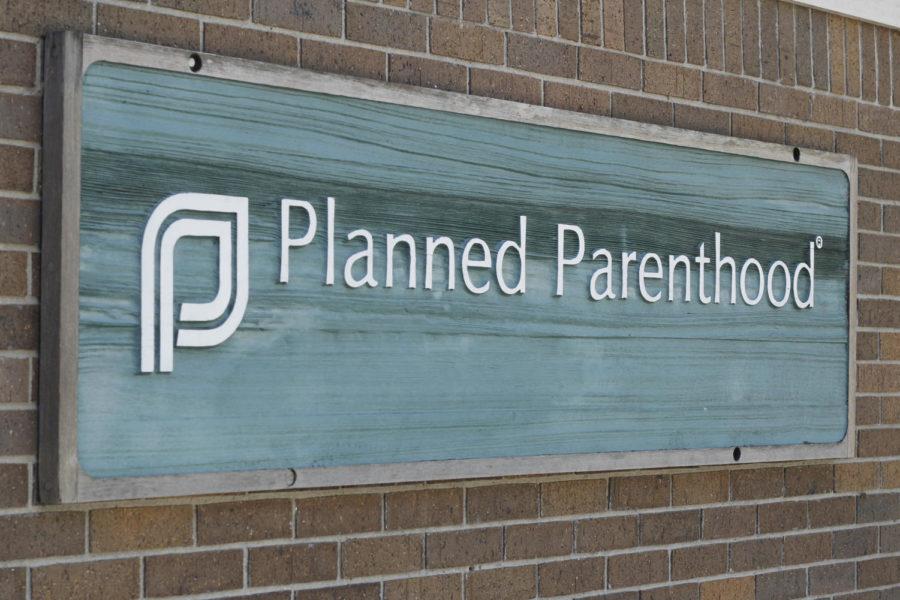Planned Parenthood of the Heartland CEO talks her history, passion for women’s health
March 3, 2015
ISU alumna gave a lecture, “From Wall Street to the Front Lines of Women’s Health,” on Monday as a kick-off event Women’s History Month.
The Iowa State Lectures Program and Margaret Sloss Women’s Center invited Suzanna de Baca, CEO of Planned Parenthood of the Heartland, to speak.
“It’s nice to be back at Iowa State,” de Baca said.
Suzanna received her Bachelor’s from Iowa State and then completed her MBA studies at the Harvard University School of Business Administration.
De Baca was raised on a farm in Huxley, Iowa. Growing up, she was always around an environment with strong women, she said. The women she was around worked and they were involved and engaged within their communities.
De Baca found her calling and learned that she valued social justice and wanted to make a difference by having an equal but diverse society, she said.
“Iowa State was a great experience for me,” de Baca said.
While at ISU, she was involved with international and national affairs, volunteered at Veishea events and was the women’s co-chair at the Sloss House for several years in a row.
While acting as co-chair at the Women’s Center, she said she learned a lot about women who made a difference.
“I learned a lot about influential women,” de Baca said.
De Baca had three topics in mind when talking to the audience: careers, money and sex. The three topics she had in mind she described as being more interrelated than many would think.
She also educated the audience about Planned Parenthood’s history, along with the historical improvements made to women’s health.
Margaret Sanger was one of the founders who started Planned Parenthood in Brooklyn, N.Y.
Birth control was first made legal for married women in 1965 because of the Griswold v. Connecticut case. In 1972, contraception became legal for unmarried women to use as well.
“I developed my own feminism philosophy,” de Baca said.
She wanted to be able control when she wanted to get married and when she would have kids.
After she graduated, de Baca knew she wanted to do something with art and work in the art field. She knew she wanted a career where should could make a difference, so she decided she wanted to work for a while to make money.
She networked and found herself working as a volunteer at a non-profit organization at the Isthmus Institution in Dallas, Texas. After two years, she became the executive director.
She said what struck her the most in her position was that she quickly learned that many Americans make financial plans for their lives, but don’t bring those plans to action, particularly women and those in the LGBT community. There is a large retirement gap between men and women, she said. That difference is because women get paid 70 percent less on average than men do.
De Baca said she learned how finances affect women. Women are mothers and are in and out of the workforce, resulting in sporadic pay. However, they are more conservative on how they use their money than men. Women live longer than men, but don’t invest their money, so it can grow with time, de Baca said.
“Women need to last their money longer because we live longer,” de Baca said.
De Baca found the opportunity to become the next CEO of Planned Parenthood of the Heartland after she found out the CEO was retiring after 30 years. She descried it as a unique opportunity.
“I feel very honored to represent Planned Parenthood,” de Baca said.
Planned Parenthood provides health care to 70,000 men and women, as well as more than 60,000 people on sexual education. Planned Parenthood of the Heartland in Iowa is the only one in the region that provides adoption services. They help out LBGTQ couples, as well as straight couples.
“It thought it was great and interesting how diverse her career history is and how Planned Parenthood provides other services just because people think abortion,” said Rebecca Chamberlin, senior in environmental science.
Zoe Kustritz, member of the committee lectures, introduced de Baca at the beginning of the event. She said she learned how amazing de Baca is as an advocate for women’s health.
“I thought it was interesting hearing her perspective on different areas especially coming from Wall Street to Planned Parenthood and she’s an amazing advocate for women’s health,” Kustritz said.







